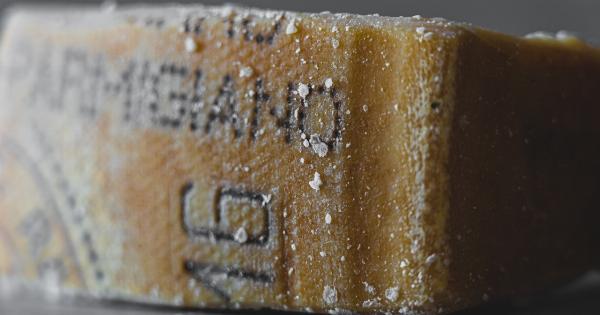Living with heart failure can be challenging, but with the right diet plan, you can manage your condition effectively and improve your overall health.
A heart failure diet focuses on reducing sodium and fluid intake while promoting a balanced and nutrient-rich eating pattern. This article provides you with essential tips for eating healthy and maintaining a heart failure diet plan.
1. Limit Sodium Intake
Sodium is a mineral found in many foods, and consuming excessive amounts can contribute to fluid retention, high blood pressure, and heart failure symptoms. Therefore, it is crucial to limit your sodium intake. Here’s how:.
- Avoid adding salt to your meals and reduce the use of salt in cooking.
- Read food labels carefully and choose low-sodium or sodium-free options.
- Opt for fresh foods instead of processed or canned foods, which are often high in sodium.
- Herbs, spices, and other salt-free seasoning blends can add flavor to your dishes without increasing sodium.
2. Choose Heart-Healthy Fats
To improve your heart health, it’s important to choose healthy fats over unhealthy ones. Incorporate the following options into your heart failure diet plan:.
- Include sources of monounsaturated fats, such as olive oil, avocados, and nuts.
- Opt for foods rich in omega-3 fatty acids, like fatty fish (salmon, mackerel, trout) and chia seeds.
- Avoid or limit saturated and trans fats found in fried foods, processed snacks, and pastries.
3. Increase Fiber Intake
Fiber plays a vital role in maintaining heart health and regulating cholesterol levels. Here’s how you can increase your fiber intake:.
- Incorporate whole grains like brown rice, whole wheat bread, and oats into your meals.
- Add fruits and vegetables to every meal and snack.
- Include legumes (beans, lentils, chickpeas) in your diet as they are excellent sources of fiber.
- If needed, gradually increase fiber intake to avoid digestive discomfort.
4. Monitor Fluid Intake
In heart failure, excess fluid buildup can strain your heart. It is important to monitor your fluid intake. Here are some guidelines:.
- Limit your total fluid intake, including water, juice, soups, and other beverages.
- Avoid or limit alcohol consumption as it can dehydrate your body and worsen heart failure symptoms.
- Monitor your weight daily and report any sudden weight gain to your healthcare provider.
5. Control Portion Sizes
Controlling portion sizes is crucial for maintaining a healthy weight and preventing overeating. Consider the following:.
- Use smaller plates and bowls to help limit portion sizes.
- Pay attention to recommended serving sizes mentioned on food packages.
- Eat slowly and savor your food to give your body time to recognize fullness.
- Listen to your body’s hunger and fullness cues, and avoid eating until you feel overly stuffed.
6. Stay Hydrated
Although it’s important to monitor and limit your fluid intake, it’s equally essential to stay hydrated. Follow these tips:.
- Sip water throughout the day, rather than drinking large amounts at once.
- If advised by your doctor, limit your fluid intake to a certain amount per day.
- Stay hydrated through foods with high water content, such as fruits and vegetables.
7. Be Mindful of Hidden Sodium
When following a heart failure diet plan, it’s crucial to be mindful of hidden sources of sodium. Some common sources include:.
- Canned soups, sauces, and canned vegetables
- Processed meats like bacon, sausage, and deli meats
- Fast food and takeout meals
- Salted snacks like chips, pretzels, and popcorn
8. Plan and Prepare Meals
Planning and preparing your meals in advance can help you adhere to your heart failure diet plan. Here’s how you can do it:.
- Create a weekly meal plan and make a grocery list based on it.
- Choose recipes that align with the heart failure diet recommendations.
- Pre-cook and portion meals for the week to save time and energy.
- Keep healthy snacks readily available to avoid reaching for unhealthy options.
9. Consult a Registered Dietitian
Every individual with heart failure may have different dietary needs. Consulting a registered dietitian can help you create a personalized heart failure diet plan.
They can consider your specific medical condition, lifestyle, and preferences to optimize your nutrition. They can also provide ongoing support and guidance.
10. Utilize Stress-Relief Techniques
Excessive stress can worsen heart failure symptoms. Incorporating stress-relief techniques into your daily routine can contribute to your overall well-being. Consider the following:.





























